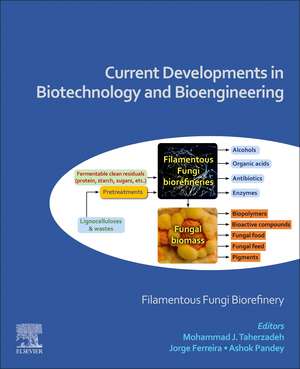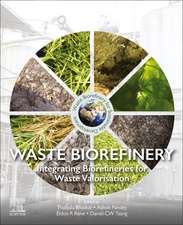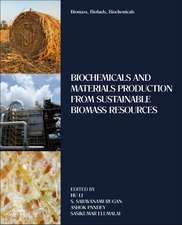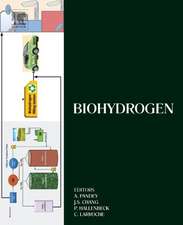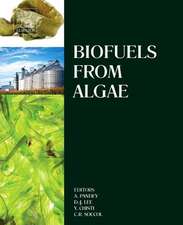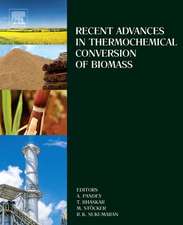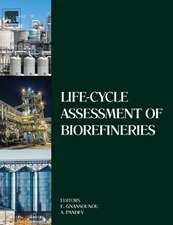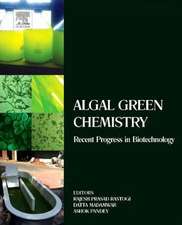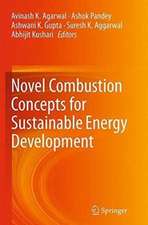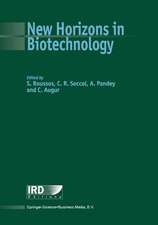Current Developments in Biotechnology and Bioengineering: Filamentous Fungi Biorefinery
Editat de Mohammad Taherzadeh, Jorge Ferreira, Ashok Pandeyen Limba Engleză Paperback – 18 noi 2022
- First book dedicated to the use of filamentous fungi for process development within waste management
- Discusses critically the transfer of research knowledge into industrial processes and marketable products
- Includes industrial application of filamentous fungi towards valorization of low-value substrates
- Provides up-to-date knowledge on research and application fields that can benefit from integration of filamentous fungi
Preț: 1052.24 lei
Preț vechi: 1374.31 lei
-23% Nou
201.41€ • 218.85$ • 169.29£
Carte tipărită la comandă
Livrare economică 14-28 aprilie
Specificații
ISBN-10: 0323918727
Pagini: 614
Ilustrații: Approx. 100 illustrations
Dimensiuni: 191 x 235 mm
Greutate: 1.04 kg
Editura: ELSEVIER SCIENCE
Public țintă
Professionals, researchers, and graduate students working in the biotechnology, biochemical and environmental engineering, applied microbiology, food technology, etc.; A guide for Biotechnologists, Microbiologists and Food Technologists who desire knowledge in Industrial Biotechnology, Environmental Biotechnology, Environmental Science & Technology, and Biochemical EngineeringCuprins
1. Introduction (world of fungi and fungi ecosystem)
2. Fungal biotechnology
3. Fungal biology
4. Mycotoxins
5. Sampling, preservation, and growth monitoring of filamentous fungi
6. Wastes, residuals, and wastewaters as feedstocks for filamentous fungi growth
7. Filamentous fungi morphology in industrial aspects
8. Bioreactors and engineering of filamentous fungi cultivation
9. Filamentous fungi processing by solid-state fermentation
10. Production of enzymes by filamentous fungi
11. Production of bioactive compounds by filamentous fungi
12. Filamentous fungi for food
13. Filamentous fungi for feed
14. Production of alcohols by filamentous fungi
15. Production of organic acids by filamentous fungi
16. Production of antibiotics by filamentous fungi
17. Biopolymers from filamentous fungi
18. Versatility of filamentous fungi in novel processes
Descriere
Filamentous Fungi Biorefinery starts on building knowledge to the reader on classification of filamentous fungi and presence and roles played in ecosystems. The importance of filamentous fungi is then further corroborated through a description of their present application in biotechnological processes supplying a wide range of value-added products. Knowledge on fungal biology is extended through discussion on structure and composition together with a description of growth potentialities of filamentous fungi in/on a wide range of substrates. The morphology of filamentous fungi is then described and its implications during integration in industrial processes discussed. The book then provides an overview on the use of filamentous fungi for the production of a wide range of value-added products including feed and food products, alcohols, organic acids, pigments, enzymes, antibiotics, and biopolymers. All provided state-of-arts are extended to a description of the present degree of application of filamentous fungi towards the production of those products using low-value substrates, identification of research gaps, and proposes on future research avenues.
- First book dedicated to the use of filamentous fungi for process development within waste management
- Discusses critically the transfer of research knowledge into industrial processes and marketable products
- Includes industrial application of filamentous fungi towards valorization of low-value substrates
- Provides up-to-date knowledge on research and application fields that can benefit from integration of filamentous fungi
